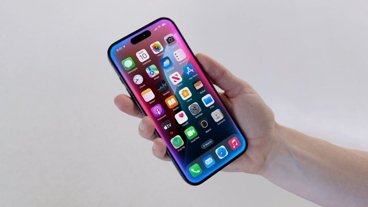Goldman Sachs has burned through considerable amounts of money on Apple Card and its other consumer-facing initiatives, with the investment bank revealing it has spent around $275 million in 2019 alone on public-based projects.
Traditionally not a consumer-facing company, Goldman Sachs has been slowly transitioning towards more public-friendly offerings. Apple Card is one of the initiatives it is pursuing as part of the change, but the shift to consumer-oriented services has been expensive for the company.
According to second-quarter earnings released on Tuesday, CNBC reports Goldman Sachs has spent in the region of $1.3 billion on its consumer services, including Apple Card, the Marcus savings accounts, and other initiatives. For 2019 so far, $275 million has been spent, which has resulted in a 0.6% reduction of Goldman's equity return.
It was not revealed how much of the totals were spent on Apple Card specifically, but the endeavor is going to be costly to the company either way. CFO Stephen Scherr advised it slowed the rate of Marcus loan growth to prepare for the demand of Apple Card, which will be arriving this summer in the United States.
There will also be a "meaningful impact" of Goldman's reserve build to support the initial growth of Apple Card, with the bank expecting to give a "strategic update" to investors in January, along with new targets and return profiles for Apple Card and Marcus at that time.
"There's no denying the consumer business - whether Apple Card or Marcus - is a risk business," Scherr admitted. "We'll continue to look at it on a risk-adjusted return basis."
While Goldman Sachs is bearing the risk, Apple could end up earning "almost pure profit" from the venture according to analysts. In May, it was suggested Apple Card could earn Apple $1 billion dollars in revenue within a few years of its launch.
In an interview in June, head of Goldman's Marcus division Omer Ismail fought concerns the structure of Apple Card to consumers isn't produced for maximum profitability by implying customer loyalty and engagement may be more important. "The idea that doing right by the customer means being less profitable is just not an idea we subscribe to," Ismail said. "If you do right by the customer, you're going to ultimately win their loyalty."
 Malcolm Owen
Malcolm Owen







-m.jpg)






 Brian Patterson
Brian Patterson
 Charles Martin
Charles Martin



 William Gallagher
William Gallagher
 Christine McKee
Christine McKee
 Marko Zivkovic
Marko Zivkovic









12 Comments
I'm looking forward to this card launching. Not just because 80% of my in-person purchases are already Apple Pay so getting 2% back that is redeemed daily will be better for most of my purchases, but because this will help push *Pay adoption (Apple Pay, Android Pay, Samsung Pay, and all other similar and secure payment systems).
I'm also expecting to see more websites adopt Apple Pay in the browser, too.
The only other thing I wish would happen is for *Pay to give retailers a small discount on merchant fees so they will also have a reason to promote *Pay on their end. Even in 2019 there are countless entities that support NFC-based payments without even knowing it.